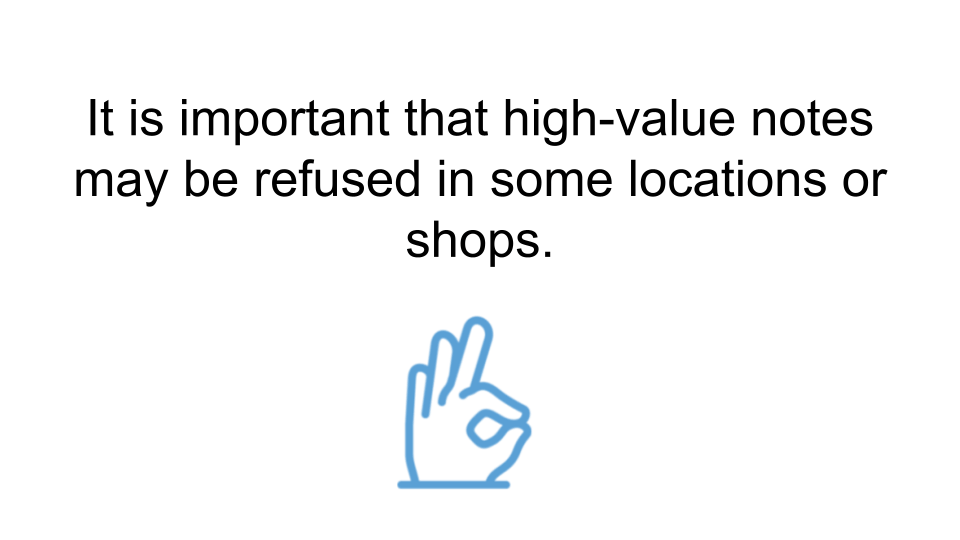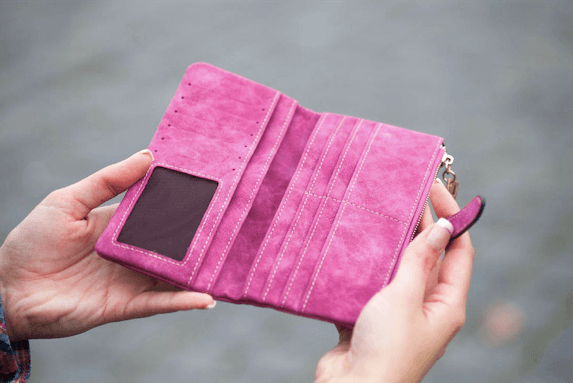It can often be difficult to figure out how to get the most out of your money when on holiday abroad. Often, using your bank card can result in inflated airport exchange rates and charges.
If you choose carefully, you can cut the costs of foreign currency conversions and ensure that you are getting the best possible deal for your spending while on holiday abroad.
What are the Options for Spending While Abroad?
There are a number of options for spending while abroad. The best option will depend on your personal circumstances. These are the most popular:
1) Cash
Taking foreign currency in the form of coins or notes is a popular option for many holidaymakers. If following this option, it is important to make sure that you budget correctly as running out could mean that you might end up buying currency at airport exchanges where charges are high with poor rates too.
What are the Benefits of Taking Cash Abroad?
The benefits of taking cash abroad include ease as it can be used anywhere, it can be easy to manage your funds as you can only spend however much you have taken out and there are no unexpected foreign usage fees.
What are the Risks of Taking Cash Abroad?
It should not be forgotten that there are a number of risks in taking cash abroad. The most obvious includes the fact that it can be lost or stolen, and thus cannot be replaced. Further, cash can be expensive to exchange abroad if you need more.
It is also important that high-value notes may be refused in some locations or shops – making the cash worthless in those instances.

2) Credit or debit cards
Many opt to take their credit or debit cards abroad. It is important that if you choose to do this, you must always watch out for foreign usage cards or even your card getting blocked by your provider.
Some card providers may even charge daily fees, which can stack up if you are spending several days abroad.
What are the Benefits of Taking Credit or Debit Cards Abroad?
The benefits between taking a credit or a debit card abroad vary slightly. While most providers will charge you for both on every transaction made abroad, there are some ways you can still take them while cutting down on the costs of your spending when abroad.
Benefits of both include security and protection since they include chips and pins, they are easy to cancel via app or phone if they have been stolen. Further, with credit cards specifically, you will have Section 75 protection on any purchases made while abroad.
What are the Risks of Taking Credit or Debit Cards Abroad?
There are a number of risks that must be considered before taking a credit or debit card abroad. These include potential overseas usage charges, as well as the cards potentially getting blocked by your provider. This makes taking credit or debit cards abroad a weak option by themselves.
Furthermore, you may accidentally become overdrawn, especially with debit cards. With credit cards on the other hand, it can be difficult to control your spending abroad. It is also expensive to withdraw cash from ATMs with both, which may be necessary if some locations or services do not take card payments.
In addition to the cash withdrawal fee from ATMs when abroad, you will also need to pay interest for the cash that is withdrawn when using a credit card. As such, you should avoid using a credit card when abroad if you plan or anticipate making any cash withdrawals due to the excessive charges that accompany it.
3) Prepaid cards
Prepaid cards can be loaded in advance with cash ahead of going abroad. They can then be used to spend in shops or withdraw from ATMs and you are only able to spend the balance loaded onto the card. This thus means that there is no risk of falling into any debt.
Prepaid cards can be used in a similar way to credit cards. The difference is that you will need to top up your prepaid account with funds before you are able to use it, as opposed to spending money abroad and then paying it off later.
There are typically two types of prepaid cards available, these include:
- Standard prepaid cards
These are designed to be used in the UK, but they can actually be used abroad for card transactions and cash withdrawals too. If you do this, you will be charged the exchange rate every time you use the standard prepaid card abroad.
- Travel prepaid cards
Otherwise known as currency cards, these are loaded with a foreign currency instead of sterling. This means you are only charged a single exchange rate when you top up the card, as opposed to every time you choose to use the card when you are abroad.
What are the Benefits of Using Prepaid Cards Abroad?
Benefits of using prepaid cards abroad include the fact that they can be used worldwide and that they are cheap to use abroad. Furthermore, by pre-loading your card, you are able to budget for your trip more easily as you are able to add only what you wish to spend.
What are the Risks of Using Prepaid Cards Abroad?
There are a number of risks that must be considered before choosing to use a prepaid card. These may depend on the prepaid card provider, as some may charge you for loading the card as well as any application fees. Further, you may be charged further fees or have a withdrawal limit when using an ATM abroad.
Additionally, with prepaid cards, you are only able to spend what is on the card. This is not ideal if you fall into a situation where you may need emergency funds or want to make a large purchase when abroad.
4) Traveller’s Cheques
Traveller’s cheques can be converted into foreign currency in specific locations abroad. For those wanting to pursue this option, you will need to provide ID in order to do so as well as sign it.
This option is not so popular as they are becoming rarer, which is thus making it more difficult to find locations abroad that will convert the cheques into cash.
If you choose to purchase your traveller’s cheques using a credit card, it is likely that you will be charged by your credit card provider for a cash withdrawal as well as by the traveller’s cheque provider. This does not apply when using a debit card to pay for your traveller’s cheque.
What are the Benefits of Using Traveller’s Cheques Abroad?
Benefits of using traveller’s cheques abroad can include the fact that they can act as a secure way to take money abroad as well as they are easy to cancel if they have been lost or stolen, with replacements typically sent within 24 hours.
What are the Risks of Using Traveller’s Cheques Abroad?
It is important to note that traveller’s cheques cannot be exchanged everywhere. This is because they are typically provided by travel money companies that operate in association with American Express. As such, when abroad you would need to find an American Express foreign exchange kiosk or check that your hotel will cash in the traveller’s cheques for you.
Furthermore, there is no access to emergency cash if they are lost or stolen. You will simply have to wait for 24 hours for a replacement. It is important to additionally remember that if you have not signed your traveller’s cheques, then they will be able to be used if they are stolen.


